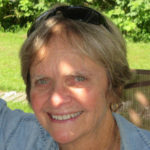 By: Ellen Lenox Smith
By: Ellen Lenox Smith
As we attempt to stay safe, we also are hoping to see the light at the end of this long tunnel with hopes of returning to some form of normalcy. My husband and I are in our 70s and have faced issues that the younger generation has not and vice versa. We are clearly all dealing with many similar issues – working to keep hands clean, wearing masks, social distancing, and losing activities and connections to people we have enjoyed in our lives. But let’s take a moment to understand just a few of the differences one is experiencing depending on their age.
Infants/Toddlers
- Some parents have had to separate during labor and are not allowed to be there for each other to share the magic of the birth of their child.
- The joy for a parent to share their new child has been denied for so many extended family members in person, using facetime and zoom calls to connect and observe their growth.
- Children learn social skills playing with others and if there aren’t other children in the family, the days get long entertaining a young child.
Elementary Age
- We all have mixed emotions as we watch our young children go off to school and then we realize all that they gain and learn to adjust – but what choice are parents going to have to make during the pandemic?
- Today, we instead are stressed as to if they should attend or stay at home for virtual schooling.
- Teaching a child the elements of cleanliness is normal but having to keep a mask on them, keep their hands clean, and understand the issue of social distancing can be an overwhelming assignment for a parent and the teachers.
- Like adults, children benefit from their friendships but if the choice is to do virtual learning, these children will have to remain separated from their social life.
- Exposing a child to all the choices in life are presently on hold for many, like swimming lessons, softball, basketball, art lessons, music lessons, etc. Those activities create wonderful memories along with learning to find what your skills and interests lean towards.
- And what about those birthday parties, Halloween celebrations, etc. – what are they looking like for your children?
Middle/High School Age
- The older the child gets, the losses seem to increase.
- The loss of sports, dances, social events, camps, school trips, graduation ceremonies, getting their driver’s permit and license, traveling to check out colleges for their future – the list of losses goes on and on and this age bracket has had to become adults to help keep us all safe.
- What about just hanging out with friends? Getting in a car together to attend a game, dance, class trip?
- And those that worked for scholarships to be able to attend school, what happens to all that work they put into their choices that now got cut short?
College Age
- Many dream of stepping into campus life, leaving home with some trepidation, but in the process of learning to move on with life.
- Many of these students have been sent home and are not returning this fall.
- Think of your time at college and all that was part of your experience if you were lucky to live on or near campus, so much of their social experience is taken away for now.
- How do you meet a new person, go on a date, and decide if this might be a good match to try to continue a relationship with?
- Many of us met our partners at this time in our life, what will this mean to their social life?
- How do you fully learn without hands-on labs, workshops, etc?
- This age range is really losing so many social and educational opportunities at this time.
Married Couples/Partners
- Parents with children are trying to work at home and raise and educate their children.
- Some are not in a financial situation to be able to afford the internet, computers, or even know how to use them, but are expected to follow the assignments their children are receiving.
- Juggling food, keeping the children safe, attending to your jobs, and keeping children educated puts parents on constant overload.
- Some face job hours shortened, layoffs, or total losses of positions.
- Many face serious financial losses and wonder if their business will survive.
- Does the family still have health insurance or is that also lost for now?
Those Living Alone
- Some bask in the joy of being alone while others are alone not by choice. Due to this pandemic, all have life jolted.
- Normal times you may want to connect in-person with another are taken away except for calls, facetime, zoom, or creative get-togethers.
- Attempting to connect with others takes extra effort to social distance and remain vigilant to keep safe.
- If you depended on family and friends for help, that has been challenged tremendously. Some are too afraid to venture out and are not willing to take the risk.
- Getting to appointments, food, receiving support even with cleaning the house has all been changed.
- Depression and loneliness can be much more intense at a time like this.
Chronic Medical Conditions
- Many people of all ages are already facing chronic medical issues.
- We need to remember that those coping with medical conditions have already altered their lives and are now challenged even more due to the pandemic.
- And now, you add isolation, issues getting to appointments, and decisions as to what is worth that chance or not.
- Many are not getting the appropriate medical care due to concerns about traveling, getting exposed, and lack of others to help they were used to turning to.
- All this stress does not help the body with healing and pain levels.
- Many are not able to afford medicine, get the proper food they need to be compatible with their issues, and even help around the house they were used to getting.
The Older Generation
- Although we were immediately told we are the most vulnerable, there are some advantages.
- Many of us have retired and are already learning the process of adjusting to a new lifestyle.
- Those living on social security, disability, and pensions have been fortunate to not have that altered. Many do not have enough to make ends meet, but in most cases, that wasn’t brought on by the pandemic.
- The loss of the family connection at this age is heartbreaking for we know we are towards the end of our years.
- Grandchildren are born we can’t meet, normal birthdays are celebrated via zoom, and family gatherings for holidays are not able to happen.
- Imagine having a child born while you were away at war and not be able to meet them in person for over two years? At least our wait won’t be that long to gather again together.
- Many in this age bracket depend on help as our bodies deteriorate. Some have been lucky to have their adult children help, but now most can’t due to living too far away or are at too much of a risk of exposure.
- And the upcoming holidays – Thanksgiving, Hanukkah, Christmas, what will that look like this year?
We are facing serious loss in all age ranges. They all matter and need to be addressed and supported the best we can. We need to listen and creatively think about healthy options and solutions. We need to take a moment and recognize that not all our losses are the same but each one matters to that generation. We need to care, reach out to others to offer support and help, and put life into perspective that each generation has some horrific losses to deal with.
Let’s look towards the future, a new normal, and work on appreciating the good we do each have in our lives.
May life be kind to you
Ellen Lenox Smith
 Ellen Lenox Smith has emerged as a leading voice for patients living with pain. Featured in local and national press accounts, Ellen brings a reasoned and compassionate perspective to the need for safe patient access to effective therapies, especially medical cannabis. Currently, Ellen serves as Co-Director of Medical Cannabis Advocacy for the U.S. Pain Foundation and is a member of its Board of Directors. She also created the Rhode Island Medical Marijuana Patient Coalition, serves as secretary of the Rhode Island Patient Advocacy Coalition, was appointed by the governor to the Adaptive Telephone Equipment Loan Program, and is part of the Oversight Committee for the Compassion Centers in RI. She is active with the EDS RI support group. Prior to patient advocacy, Ellen was a longtime middle school social studies teacher. She has been married for 47 years and is the proud mother of four adult sons and grandmother to five grandchildren. She also is the author of two books, an organic gardener, and was previously a master swimmer and high school swim coach.
Ellen Lenox Smith has emerged as a leading voice for patients living with pain. Featured in local and national press accounts, Ellen brings a reasoned and compassionate perspective to the need for safe patient access to effective therapies, especially medical cannabis. Currently, Ellen serves as Co-Director of Medical Cannabis Advocacy for the U.S. Pain Foundation and is a member of its Board of Directors. She also created the Rhode Island Medical Marijuana Patient Coalition, serves as secretary of the Rhode Island Patient Advocacy Coalition, was appointed by the governor to the Adaptive Telephone Equipment Loan Program, and is part of the Oversight Committee for the Compassion Centers in RI. She is active with the EDS RI support group. Prior to patient advocacy, Ellen was a longtime middle school social studies teacher. She has been married for 47 years and is the proud mother of four adult sons and grandmother to five grandchildren. She also is the author of two books, an organic gardener, and was previously a master swimmer and high school swim coach.
